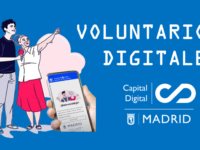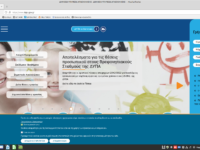To tackle air pollution and climate-related challenges, Milan has devised and executed a groundbreaking initiative to engage citizens in sustainability planning – the Permanent Citizens' Assembly on Climate. By fostering inclusive deliberations, the Assembly puts forth tangible recommendations for the city's long term sustainable development agenda. Its innovative model guides an equitable transition that positively impacts all residents ensuring durable civic participation in policymaking.
Innovation Tag: Citizen Engagement
The project considered the main needs that the Senate is facing:
-The need to facilitate citizens' access to public information, large number of requests, long time for responses
-Time consuming processes, the need to streamline internal processes
-The need to improve transparency of national decision-making process
-Low digital skills of employees
The project is innovative by digitizing internal workflows (mostly used only paper format), employee training and external processes for citizens
Santo Stefano di Sessanio is a rural village affected by long-standing depopulation and marginalisation phenomena that need to be effectively tackled. Seizing the opportunity of funds for socio-economic revitalisation, a participatory process was promoted to identify a framework of proposals responding to real local needs and aimed at improving the attractiveness and liveability of the village, while strengthening the local community's sense of trust, spirit of cooperation and responsibility.
DCCEEW partnered with the CSIRO to develop a novel approach to track social licence for the energy transition. A valid and reliable survey instrument was designed and deployed to measure Australian attitudes and behavioural intentions towards the energy transition. As the energy transition has been met with concern from communities, results from this survey are key to developing evidence-base policy, and to bassline and track social licence to ensure a speedy and just energy transition.
The City of Austin has piloted an anticipatory governance tool named the Civic Research Agenda (CRA) to help the City become future-ready in the face of complex civic challenges.
The CRA leverages a strategic foresight methodology to proactively plan for plausible future scenarios and identify implications for decision-making today, thus moving the City away from reactionary and short-sighted policy making and enable it to “look around the corner” to future challenges and opportunities.
Digital Training for All ensures and monitors the continuous progress in digital skills to promote the digital training of citizens by integrating and enhancing the city's public-private strengths. To this end, a dynamic alliance will be created to stimulate the city's digital skills ecosystem, bringing it closer to the public. Among its initiatives, Digital Volunteering is already a reality, a digital accompaniment project for the elderly population to mitigate loneliness and reduce the digital…
The Reciclocidades was implemented to strengthen community relationships and contribute to the generation of work and income, the reduction of social inequality, female empowerment and the longevity of natural resources. It offers solutions to problems and needs that affect society, mainly aimed at women in socially vulnerable situations, who are trained to transform solid waste into new products that can be sold. Its main objective is to generate work and income for socially vulnerable women…
Case Study
Uchi Creativo, revaluing cultural identity in the indigenous and peasant communities of Amazonas –…
The progressive loss of cultural identity in the indigenous and peasant communities of the Amazon region (Urakusa, Shushug, Pakuy and Leymebamba - 6500 inhabitants), led the population to ask the State to support the formulation and implementation of an action plan, including the direct participation of indigenous youths. A total of 123 children participated in the creation of copyright protected literary and artistic works to revitalise cultural heritage, and over 1,115 Awajún indigenous…
The DYPA Career Days, organized by the Public Employment Service (DYPA) in Greece, fosters direct engagement between the business sector and jobseekers. This marks a significant departure for DYPA as these events are now systematically conducted, spanning the entire country. A key strength of DYPA’s Career Days lies in their comprehensive promotion of employment opportunities and the strategic engagement of interested individuals through a process characterized by simultaneous, adaptable, and…
The Public Employment Service (DYPA) in Greece has launched the PROSVASIS platform, a new digital platform which is based on the latest Web Content Accessibility Guidelines (WCAG) 2.1 AAΑ international standard. With the use of this platform persons with disabilities and especially persons with visual and hearing difficulties, physical and cognitive/mental disabilities have access to the content of the DYPA website thus promoting inclusiveness for these vulnerable social groups.


